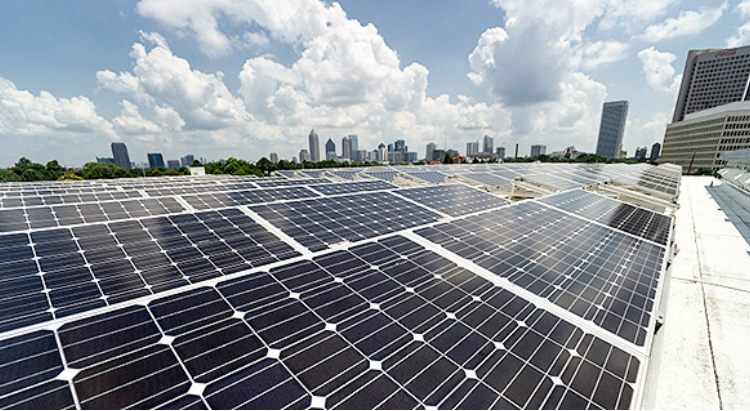Here are two good explainer articles on the Suniva Inc. trade complaint and its potential to increase photovoltaic panel pricing.
As soon as this fall, the case could affect ongoing clean energy projects in across the U.S. A takeaway line from the Solar Energy News article:
If the tariff is enacted, planned utility-scale solar projects will be put back on the shelf, to gather dust, and a number of state markets will be beyond the purview of residential installers as well.
The complaint is scheduled for an Aug. 25 International Trade Commission hearing. A favorable ruling eventually would kick the case up to President Trump, who could decide by year’s end on this issue for of vital concern to solar manufacturers, installers, building teams and property owners.
Suniva wants the ITC to file duties on foreign-made cells and a floor price on PV panels made with foreign cells. The Solar Energy Industries Association issued a paper this month claiming that would result in 88,000 workers losing their jobs.
Suniva is a Norcross, Ga., solar panel manufacturer founded by a Georgia Tech Professor Ajeet Rohatgi. It filed both the trade complaint and bankruptcy projection and filed the trade complaint Ironically, Suniva’s majority owner is now a Chinese clean energy company.
Photo above: Suniva solar panels on the roof of the Carbon-Neutral Energy Solutions Laboratory at Georgia Tech. Courtesy Department of Energy.



Suniva is not the only company doing this. Solarworld is as well. The Chinese market is rife with shady business practices, human rights abuses and shoddy construction. What’s wrong with attempting to safe guard the only few actual solar manufacturing jobs left in the US and protecting the integrity of the industry? EVERY other country has trade tariffs on goods imported from places like China and India. If we want to protect well paying jobs and not all be serving coffee at a Starbucks, then we need to alter the typical global business trajectory of the past.
Even Bernie was smart enough to understand this…